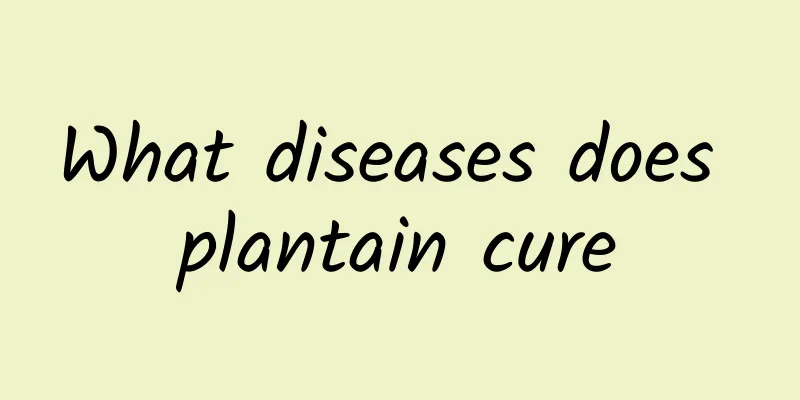Young people please eat less sweets! A study of 30,000 people found that drinking one cup of sugary drink a day increases the risk of colon polyps by 34%!

|
The incidence of colorectal cancer among young people in many countries is also increasing. Doctors remind that studies have shown that eating habits have a considerable impact, and the latest research in the United States found that "sugar-containing drinks" and "sweets" are the causes of the increased incidence of colorectal polyps. Although colorectal cancer is not directly counted, most cancers are caused by polyps, so be careful. The incidence of colorectal cancer among young people in many countries is increasing! Doctors warn that statistics from the United States show that the incidence of colon cancer in people under 40 has doubled compared to the previous generation, and rectal cancer has quadrupled. Current research believes that this is related to "Westernized diet, obesity, antibiotic use, and changes in intestinal bacteria." In terms of diet, colorectal cancer is indeed related to "eating too little high-fiber food, eating too much red meat, eating too much processed food, or insufficient calcium intake." However, it has been reported before that sugary drinks or sweets increase the risk of colorectal cancer, and nowadays, young people eat the most "sweets" and "sugar-containing drinks." Is there a relationship between sweets and colorectal cancer? According to a study published in the United States in 2021, although it did not directly count colorectal cancer, the study analyzed the relationship between "colorectal polyps" and the intake of sugar and sugary drinks during adolescence. The results pointed out that "fructose has the greatest impact." The so-called sugary drinks refer to cola, 7-Up, fruit juice, etc., but the reason is that there are fewer hand-shaken drinks such as bubble milk tea in the United States. Doctors point out that colorectal cancer mostly evolves from colorectal polyps, so the increased incidence of colorectal polyps should not be taken lightly. According to a study of 33,106 American women's eating habits in middle school, followed by colonoscopy results in adulthood, the correlation between sugar in the diet and colon polyps was analyzed. "Not surprisingly, the two are related." The doctor listed the statistical results for your reference: 1. Fructose intake increases the incidence of colorectal adenoma, especially in the distal colon and rectum, with rectal adenoma increasing by 43%. 2. High fructose intake increases the incidence of high-risk adenomas by 30%. 3. Drinking a glass of sugary beverage every day will increase the incidence of colorectal adenoma by 11%, among which rectal adenoma will increase by 30%. 4. Drinking one sugary drink a day increases the incidence of high-risk adenomas by 34%. 5. Sugar intake in adulthood is not related to colorectal adenoma. The doctor stressed that the research shows that "teenagers who eat more sweets will increase the incidence of colorectal adenomas," especially rectal adenomas, which coincides with the current increase in the incidence of rectal cancer in young adults (under 50 years old). Doctors believe that adolescents are in a period of development, their cells are differentiating at an accelerated pace, and hormonal and metabolic changes are also taking place. Sweets eaten during this period have a particularly large impact on insulin and obesity. For example, sugary drinks can increase blood sugar and insulin in a short period of time, which will increase insulin resistance in the long run, and then change gene expression, causing abnormal cell differentiation. In addition, high blood sugar can accelerate chronic inflammation, increase inflammatory factors and induce colorectal cancer. Animal experiments have observed that feeding mice high fructose corn syrup directly causes the growth of colorectal tumor cells. In addition, the study also analyzed fruits and concluded that "eating fruits can reduce colon polyps", but drinking too much fruit juice will not be of much benefit. Although both fruits and fruit juice contain fructose, the former can provide dietary fiber and trace elements, which are beneficial to the intestines, while the latter has less fiber that needs to be broken down, and is absorbed quickly in the small intestine, which can easily lead to excessive sugar intake, which in turn becomes a burden on the liver and large intestine. Finally, the doctor reminded that colorectal cancer is mostly developed from colorectal polyps. "Preventing colorectal polyps is preventing colorectal cancer." If you have colorectal polyps at a young age, "don't doubt it, it's because you eat too much sweets and sugary drinks!" Source: Medical Courier, ETTV |
Recommend
The efficacy and function of Gouer Tea
In daily life, people are not only very familiar ...
Why can't cities be without trees?
March 12, 2022 is the 44th Arbor Day. Let's p...
The efficacy and function of Epimedium root
There are so many medicinal herbs in the world, a...
It's confirmed: 10 more astronauts have been selected for the return to the moon, codenamed "Artemis"
The US plan to return to the moon has been a hot ...
Salonpas pain relief patch
Salonpas pain relief patch can effectively reliev...
What are the medicinal values of animals?
With the continuous development of society, peopl...
I feel uncomfortable if I don’t drink it for a day! Milk tea is delicious and addictive, but do you know the "seven deadly sins"?
Have you had your first cup of milk tea in summer...
Beyond the "black technology" of food, clothing, housing and transportation, textiles can also go to heaven and earth!
On February 22, the Long March 8 Yao-3 carrier ro...
A 500,000 yuan transfer from a stranger "online user"? Be careful, don't become a "tool" for online fraud
As the end of the year approaches, the online fra...
Effects of Chinese herbal medicine Astragalus
I believe everyone is familiar with traditional C...
The efficacy and function of fried hemp seeds
Hemp seed is the mature seed of cannabis. The eff...
The efficacy and function of tiger eye
Tiger's eye is a medicinal material that can ...
What are the effects of Chuanxiong?
Chuanxiong is a very common Chinese herbal medici...
The efficacy and function of Korean thuja
Speaking of Korean thuja, many people know that i...
To be honest, the kitchen tools commonly used during the Chinese New Year may be dirtier than the toilet!
Where do you think your home is most likely to br...









